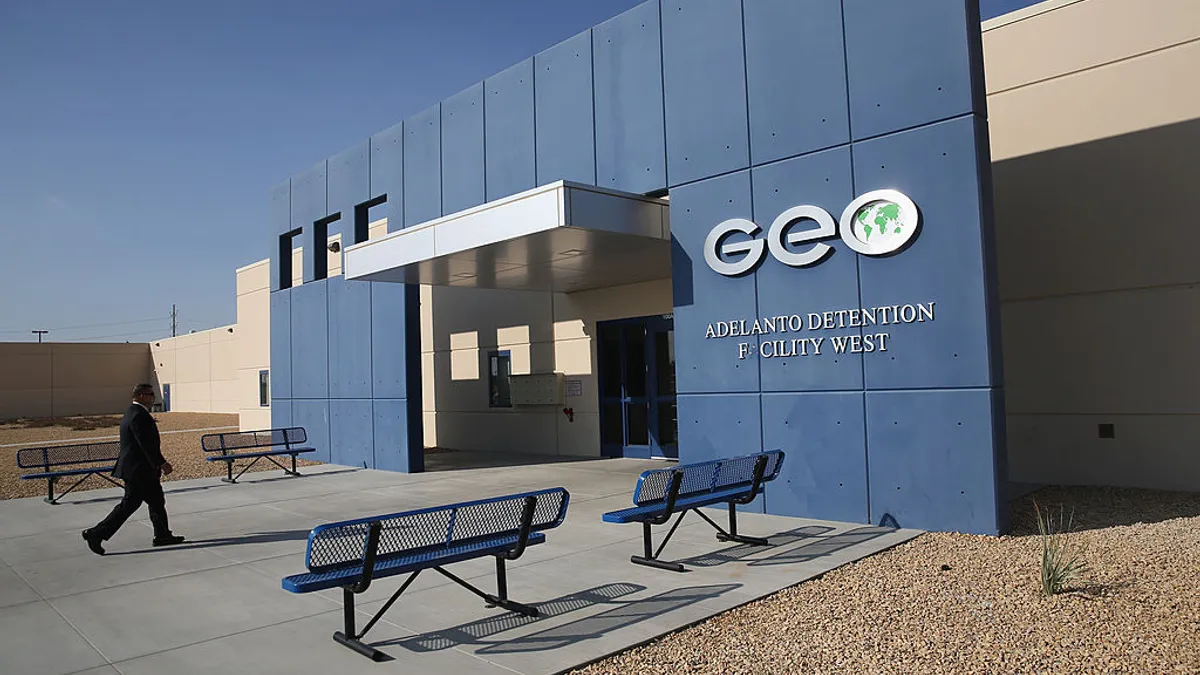Amid a flurry of moves on his first day in office Jan. 20, President Donald Trump revoked an executive order that directed the U.S. Department of Justice not to renew contracts with privately-operated criminal detention facilities. The move was a part of the larger “Initial Recissions of Harmful Executive Orders and Actions” executive order.
President Joe Biden signed Executive Order 14006, “Reforming Our Incarceration System To Eliminate the Use of Privately Operated Criminal Detention Facilities,” in January 2021. The order stated that “To decrease incarceration levels, we must reduce profit-based incentives to incarcerate,” and noted that “privately operated criminal detention facilities consistently underperform Federal facilities with respect to correctional services, programs, and resources.”
As a result of President Biden’s order, the federal Bureau of Prisons, an agency within DOJ, had transferred all inmates previously held in private facilities to BOP facilities by November 2022, according to a news release the agency released Dec. 1, 2022. The U.S. Marshals Service, another DOJ agency, still holds some of its 63,000 inmates in private prisons, according to the agency’s website.
Some of the country’s largest private prison operators are likely to benefit from Trump’s move. Day 1 Alliance, a trade association that launched in 2019, represents some of these companies, including The Geo Group, CoreCivic, LaSalle Corrections, and Management and Training Corp. Trump’s nominee for attorney general, Pam Bondi, lobbied for the Geo Group in her role with a Washington, D.C.-based firm, according to a Jan. 20 blog post by The Brennan Center for Justice.
Day 1 Alliance spokesperson Alexandra Wilkes stated in an email that “the Biden Administration’s Executive Order was a misguided attempt to blame longtime government contractors for a ‘mass incarceration’ problem that they play zero role in driving.” The email added that “In reality, contractors have been a limited but valued part of the solution to serious challenges facing the U.S. criminal justice system, providing flexible, cost-effective solutions to our government partners for decades – under both Democratic and Republican administrations.” According to Wilkes, 8% of incarcerated individuals in the U.S. are in facilities operated by contractors.
The Brennan Center’s blog post states that CoreCivic and The Geo Group’s most significant federal contracts are with ICE, which is not impacted by the reversal of Biden’s executive order. In 2023, ICE contracts accounted for 30% of CoreCivic’s revenues and and 46% of The Geo Group revenues, it states.
During an earnings call following the election, The Geo Group’s executive chairman, George Zoley, stated that Trump would begin reversing executive orders “on Day 1.” During the call, Zoley was asked how quickly a reversal would impact the company’s operations.
“It's immediate, but there will be a scramble for the available beds,” Zoley said. “I think the administration will decide who gets the beds, and we believe [U.S. Immigration and Customs Enforcement] will have top priority on all available beds around the country.”
The Brennan Center for Justice said it also believes ICE will be the administration’s priority.
“Given that President Trump has promised mass deportations, for-profit firms will likely see their revenue grow the most from ICE contracts for transportation and detention of undocumented people,” the blog post states. Trump’s reversal does not impact contracts that the federal government has with for-profit firms to run immigration detention centers, which ultimately fall under the responsibility of the U.S. Department of Homeland Security, it added.
“The reversal also doesn’t impact state and county contracts with these corporations, which is a significant revenue generator for the firms as well,” the center said.












